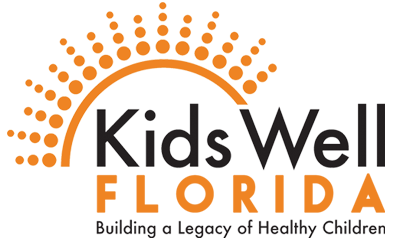
By Vance Aloupis, Statewide Director, The Children’s Movement
A combination of children’s eligibility expansions, outreach efforts, and simpler enrollment in Medicaid and CHIP has led to significant progress in reducing the number of uninsured children in America. But despite the progress the U.S. is making in reducing the amount of uninsured children, recent studies by the Georgetown University Health Policy Institute’s Center for Children and Families reveal that state progress in reducing the number of uninsured children has slowed and disparities remain.
The state of Florida ranks 44thout of the 50 states and the District of Columbia in covering children with health insurance. While the rate of uninsured children nationwide remained just above seven percent, the rate of uninsured Hispanic children remains disproportionate. (Even as the population grows, Hispanic children are more than twice as likely to be uninsured than their white non-Hispanic peers.)
In the U.S., an estimated total of 2 million Hispanic children, 90% of whom are citizens, are uninsured. Florida’s rate of uninsured Hispanic children under the age of 18 was 14.4% in 2013, well above the 11.5% national average. That equates to nearly 168,000 Hispanic children being uninsured.
Researchers have found that approximately half of U.S. children ages 1 to 17 years do not receive the standard provision of high quality health care. This provision requires that children have a consistent source of health care and a personal provider, who knows the child, has access to health records, and can make sure that care is coordinated to cut down on costs by improving prevention and by limiting duplicative care. Insured children are almost twice as likely to have medical homes as uninsured children. Expanding access to medical homes could improve the quality of health care and increase equity among all of our children.
Health care has also been linked to reading scores, school attendance, academic performance, graduation and employment rates, teen pregnancy, and substance use. Without insurance, our children—and ultimately our families, schools, and the workforce—will have declining health and well-being. Studies have established that relatively minor declines in a child’s health can be compounded over the years, resulting in very serious lifelong consequences. Despite evidence supporting the need for early childhood investment, a continuing history of inadequate policy and funding has left the nation with a patchwork child health system.
Without health insurance, children do not receive adequate care or seek prompt treatment when they are ill. They are more likely to lack immunizations, prescription medications, and basic dental care that turn preventable complications into unnecessary hospitalizations. Most of Florida’s uninsured children are already eligible for Florida KidCare, our state’s health insurance program for children without private insurance, but many parents don’t know that their children are eligible or may not know how to enroll in the program.
We are now facing a new era of health care that holds the promise for fundamental improvements in access to high quality, affordable coverage in Florida. On Monday, United States Health and Human Services Secretary Sylvia Burwell visited FIU to discuss local and national healthcare advocacy to get people to sign up for health coverage under the Affordable Care Act. She was joined by a panel that included moderator Nicholas Duran, Florida State Director for Enroll America and formerly with The Children’s Movement of Florida, and panelists Karen Egozi, CEO, Epilepsy Foundation; Annie Neasman, CEO, Jessie Trice Community Health Center; and Marisel Losa, CEO, Health Council of South Florida.
Secretary Burwell highlighted the importance of enrolling and re-enrolling individuals, bearing in mind how influential Florida was in enrollment last year. In this second open enrollment period, the focus has shifted to educate and engage the Hispanic community of Florida by increasing accessibility and mobile platforms so that they can sign up more easily.
In addition to these efforts, non-profits like Enroll America are working to get more Hispanics access to health care by knocking down previous barriers to enrollment, including fear, language, the misconception of costs, and paperwork in order to provide coverage for parents and their children.This open enrollment period is a great opportunity for Hispanics to cover their children and build on the national progress that has been made on behalf of Florida.
As a state, the smartest thing we can do is ensure that our children have a pediatrician and the standard provision of high quality health care to provide them with foundation to grow, learn, and thrive. Through targeted efforts and the trusted voices of Florida’s families, KidsWell Florida (Florida CHAIN, The Children’s Movement of Florida, the Florida Center for Fiscal and Economic Policy, The Children’s Trust of Miami-Dade, and Florida Children’s Healthcare Coalition) is working tirelessly to make that goal a reality.
To learn more about the work The Children’s Movement of Florida is doing for health access and KidsWell Florida, please contact Vance Aloupis at [email protected] or call 305-646-7134.

After practicing law in South Florida, Vance Aloupis joined The Children’s Movement in June 2010, now serving as the organization’s statewide director. Working directly with Dave Lawrence, Vance’s work focuses on building statewide awareness and support for early childhood education through organizational collaborations, regional strategies, fund-raising and increasing public awareness.





November 19, 2014
Blog